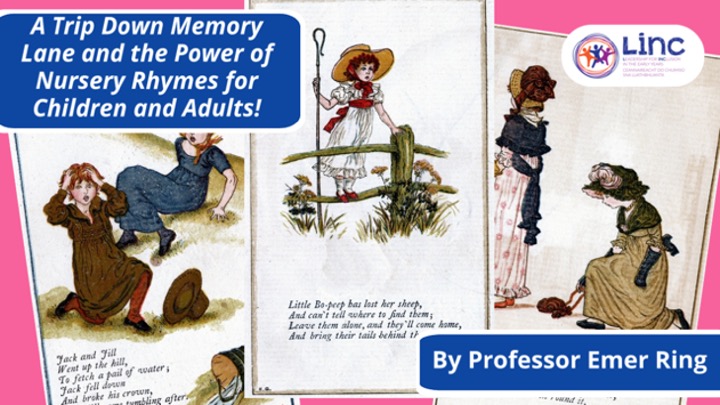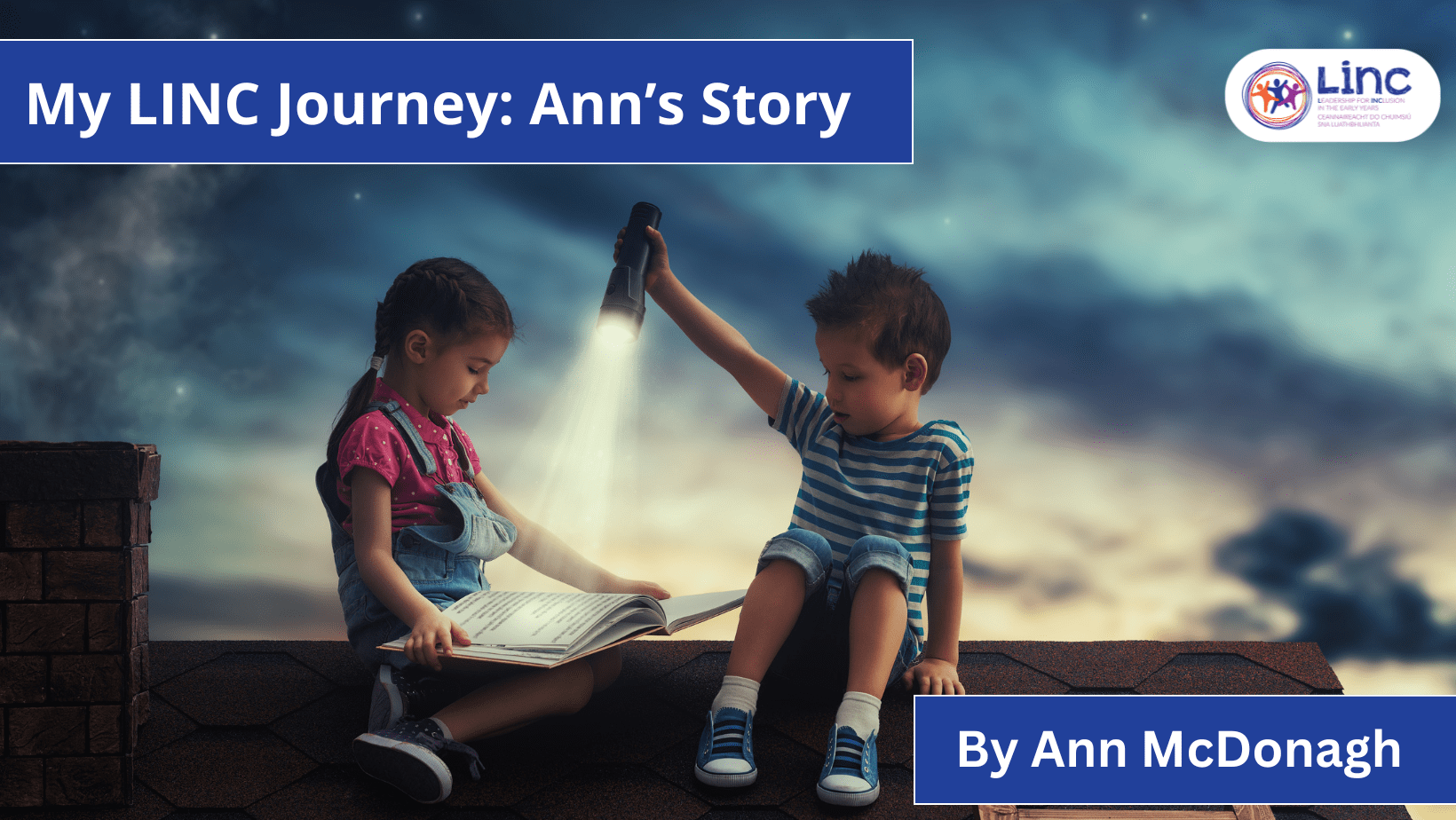
I was lucky enough to teach 4-5 year olds for over ten years. Among my favourite moments each week was teaching a nursery rhyme. During initial teacher education, one of my heroes was Friedrich Froebel (1782-1852), often referred to as the ‘Father of Kindergarten’ and I remember being particularly struck by his beautifully illustrated ‘Mother’s Songs, Games and Stories’, published in 1888 and available now at https://archive.org/details/motherssongsgame00fruoft/page/n3/mode/2up You will see many of the rhymes that even today we are familiar with, and the music accompanying these rhymes can be listened to at http://www.froebelfoundation.org/musicff.html
Research in early childhood education has since confirmed that Friedrich Froebel was indeed on the right track when he suggested that playing with sounds in language has significant benefits for children’s learning and development, and nursery rhymes are one of the best and most fun ways we can do this. Among the benefits of nursery rhymes for young children are:
· Nursery rhymes are ‘mini’ stories and are a great way to begin to foster children’s engagement with storytelling.
· Nursery rhymes support children’s receptive and expressive language development.
· Through nursery rhymes, children become familiar with the sounds and rhythmic patterns in spoken language, referred to as phonological awareness, which is an essential precursor for later formal reading.
· Nursery rhymes can reinforce mathematical concepts such number, shape and space in fun and enjoyable contexts.
· Children’s imagination and creativity are nurtured as they engage with the myriad of characters and scenarios in nursery rhymes.
· Nursery rhymes, through suggesting actions, physical movement and dance, promote children’s fine and gross motor development.
· Nursery rhymes create an opportunity for children to participate in enjoyable interactive and social contexts with adults and with each other.
· Creative expression through Art and Drama is nurtured as children often spontaneously draw/paint/sculpt images suggested by the rhyme and/or naturally become the characters in the rhyme.
Most importantly, we know that children enjoy singing, reciting and playing with, and through nursery rhymes, and we know that learning and development flourishes when we are happy and having fun!
Think about your favourite nursery rhyme, how you can still recite it with all those accompanying actions and how much fun it still is!
Mine is ‘Twinkle, Twinkle Little Star’!
Now have a listen to children reciting their favourite nursery rhymes for all of us!
Narrated by Chloe age 4
Produced by Dermot Comerford
Music by The Green Orbs
Narrated by Tom age 5
Produced by Dermot Comerford
Music by The Green Orbs
Narrated by Lauren age 8
Produced by Dermot Comerford
Music by The Green Orbs
About the Author

Emer Ring
Dean of Early Childhood and Teacher Education at Mary Immaculate College
Prof Emer Ring is Dean of Education, Early Childhood and Teacher Education at Mary Immaculate College, Limerick. Emer leads and manages one of the largest education faculties in Ireland, which provides a wide range of programmes from early childhood to post-primary level at undergraduate and post-graduate levels. Emer’s previous experience includes Course Leader for the Bachelor of Arts in Early Childhood Care and Education (BA ECCE) and Head of Department of Reflective Pedagogy and Early Childhood Studies. Emer has also been District and Senior Department of Education Inspector, with a particular focus on special education. Her teaching experience spans twenty years across early years education and shared teacher of children with special educational needs Emer has led a range of research projects focused on early childhood education and inclusion. Together with colleagues in the Leadership for INClusion in the Early Years (LINC) Programme Consortium, Emer led the design, development and evaluation of the multiple-award winning programme. The LINC programme is a key element of the Irish Government’s global award winning Better Start Access and Inclusion Model. Emer supervises a wide range of undergraduate and post-graduate research at Masters’ and PhD levels. Prof Ring has recently been Country Analyst for the European Agency for Special Needs and Inclusive Education in mapping policy and provision for the inclusion of children and young people with special educational needs across the education system. Emer has also supported the work of UNESCO with its publication in 2021 Inclusive Early Childhood Care and Education: From Commitment to Action and the work of the OECD in 2021 Strengthening Early Childhood Education and Care in Ireland: Review on Sector Quality. She has extensive experience in the development of inclusion across the education system and is currently completing a publication for the National Council for Special Education focused on charting the outlines of the development of special education in Ireland 1922-2022 including in the early years, which is due to be published in Autumn 2024.
You may also like:

The LINC Programme and MIC Support Shine’s 2025 Green Ribbon Campaign: Step Up to Stamp Out Stigma
The LINC Programme and MIC Support Shine’s 2025 Green Ribbon Campaign: Step Up to Stamp Out StigmaThe Leadership for Inclusion in the Early Years (LINC) Programme and Mary Immaculate College (MIC) are proud to once again support the national Shine Green Ribbon...

Promoting and Building a Strong Partnership with Parents/Caregivers
Promoting and Building a Strong Partnership with Parents/Caregivers In this edition of the LINC Blog, LINC Graduate Teresa Callanan explores the importance of building strong partnerships with parents and caregivers. She reflects on how open communication, trust, and...

My LINC Journey: Ann’s Story
My LINC Journey: Ann’s Story In this edition of the LINC Blog, Ann McDonagh Owner/Manager of Bright Beginnings in Oughterard, Co. Galway and LINC programme participant reflects on her journey through LINC as she submits her final assignment for the...
